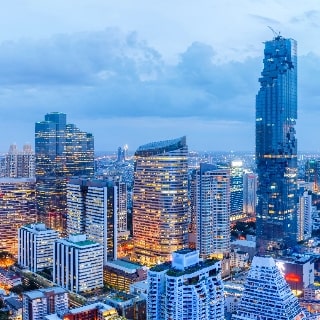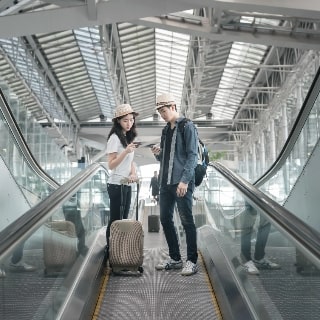
Since then, International School Thailand has grown to become more than just an alternative to traditional Thai schools; it’s the premier choice for parents and students who want their education to reflect the era and image of today’s world. More International Schools in Thailand. Whether you’re an expat making Bangkok your home or you’re a Thai parent who believes in the benefits of a global education, International Schools in Thailand will provide you with this, plus much more.
But aside from the shiny brochures and campus tours, there’s much that still remains a mystery to so many of these parents, unaware of what makes an International School Thailand actually stand out. If you’re just beginning to consider this journey, here are some eye-opening facts that can aid you in making a more educated decision.
There Is No One-Size-Fits-All Curriculum
Among the most popular International School Thailand myths is that all international schools use the same educational system. In actual fact, there’s quite a variety.
Some schools offer a British curriculum (including IGCSEs and A-Levels), others an American system (with AP classes), and an increasing number the International Baccalaureate (IB) program. Some draw pieces of one or more systems to cobble together instructional workouts that better fit with their individual learning needs.
Knowing these differences, particularly in terms of how the two systems position students for university pathways, can make a big difference in your child’s academic future.
Student Bodies Are a Lot Less Homogeneous Than You Think
That’s no longer the full picture, even though at its genesis, International School Thailand served mainly expat families. In recent times, more and more Thai students have attended international schools. In truth, it́s often the case that today's classrooms are a mix of a variety of local and international experiences and generate truly multicultural learning environments.
This variety ensures that children learn about the world around them as they experience different cultures, points of view, and ways of thinking in their daily life at school.
English Is the First Language but Not the Only One
The Majolica, the oldest International School in Neunkirchen, Most International Schools in the Netherlands & International Schools Thailand use English as the prime language of instruction for students from an early age. But a surprising number also have strong language programs in Thai or Mandarin or French, or Spanish, giving children the opportunity to become multilingual, to say nothing of the social equity implications.
For Thai students, this entails holding on to their mother tongue while learning foreign ones. For international families, it’s a chance to expose the little ones to new languages in a supportive, structured environment.
Teachers Are Top-Notch — and Often International Themselves
Another strength of International School Thailand is the teaching. These are the schools that are confident in recruiting teachers internationally, many of whom have a background working in international or bilingual education.
Teachers have general degrees in education, but also have additional certifications based on the curriculum they teach—whether that’s IB, Cambridge, or U.S. Common Core. Schools are also investing in continuous professional development for teachers, so that your child is learning from educators who have the most current information on how learning works and the latest digital tools.
Tuition Prices Can Be All Over the Map (and May Be More Than You Think)
While it’s certainly no secret that international education doesn’t come cheap, one thing that can catch many parents off guard is just how immensely tuition structures can differ from school to school in Thailand. Although some elite schools come with substantial fees for the luxury of small classes and state-of-the-art facilities, affordable choices are available with proven results.
It also bears mentioning that tuition might not only pay for classes. In a number of Thailand’s International Schools, meals, textbooks, after-school activities, and occasional excursions are already covered by the course fees. Always ask for a detailed breakdown to compare value, not just cost.
Accreditation Should Matter More Than You Think
Not all schools that call themselves “international” are made from the same mold. This is the reason why you should check whether an International School Thailand is accredited by global organizations that are regarded worldwide, such as CIS (Council of International Schools), WASC (Western Association of Schools and Colleges), or is authorized to offer the IB program.
It’s not a mere formality: It attests that the school meets international standards for the quality of its curriculum, the way it is managed, how it supports students, and the professional development of its faculty.
Holistic Development is Well Focused Upon
Many parents are academics-driven, but The International School Thailand is more than just test prep. These schools are generally more holistic, nurturing not only intellectual growth but also emotional intelligence, physical health, artistry, and social responsibility.
Whether through service learning projects and STEAM programs, to music ensembles and Model U.N., students are encouraged to find pursuits they are passionate about, work to develop their craft, and establish themselves as leaders from a young age.
What Parents Should Be Aware of Before Choosing a Thailand International School
What do you look for when picking an International School? It’s about fit. What makes a great system for one child, will not be the best for another. That is why parents need to take a long look at schools, meet teachers, sit in on lessons, and talk to other parents in the community.
Here are a few key tips:
- Inquire into the student/teacher ratio
- Find out how the school accommodates various learning styles or learning differences
- Reflect on the balance between studies and curricular involvement.
- See how the school gives support for university counseling or transitions between systems
- Know the values, mission, and long-term vision of the school
The more you can learn, the more confident you’ll feel about making the best choice for your child.
Closing Thoughts: What is there to be seen?
Thailand has emerged as the regional center for an international education of the very highest quality, and with good reason. World-class facilities, passionate teachers, and an international mindset, International School Thailand provides a learning environment that equips children for the next stage of their education, and prepares them to embrace the opportunities and challenges of the world they will inherit.
If you’re in the early stages of researching, feel free to go to the open house, book school tours, or schedule trial days. The right environment can ignite confidence, curiosity, and a lifelong love of learning , and there’s no better way to find that perfect fit than to see it in action.





















